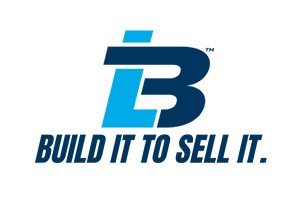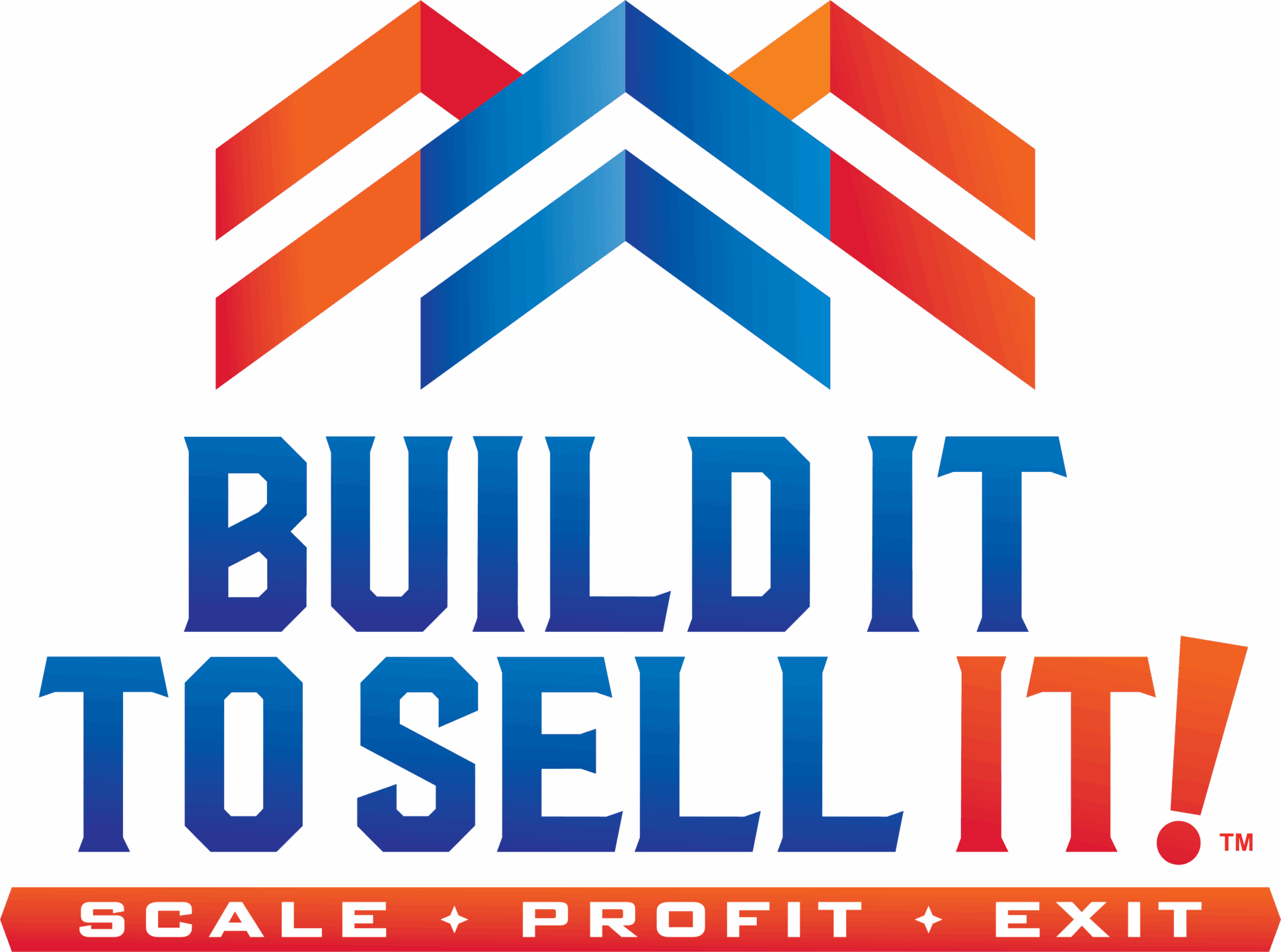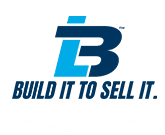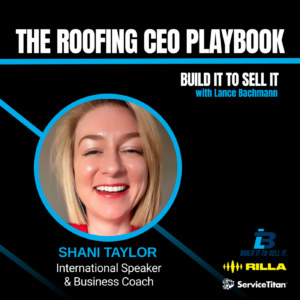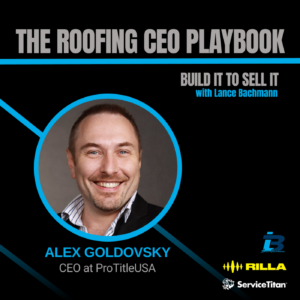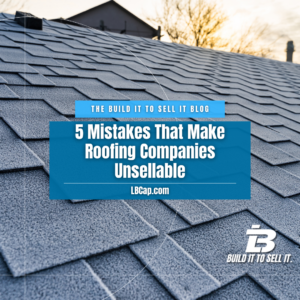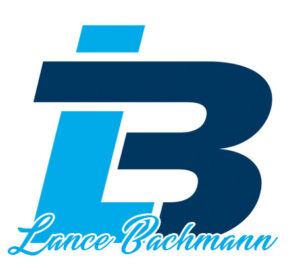The Roofing CEO Playbook: Build It to Sell It podcast is sponsored by our friends at Rilla and ServiceTitan.
Episode resources:
Alex Goldovsky Automated Transcript
[00:00:00] Lance: And that was such a rush. You know? That’s what I love about it. It’s you think something is unachievable, unrealistic. Right? When somebody comes in and says, Lance, I want you to fix a 1000 roofs in in a week. Can you do it?
[00:00:15] Alex: I’ll get it done.
[00:00:16] Lance: I’ll get it done. Perfect.
[00:00:17] Alex: I mean, I’m gonna get it done. I mean, it’s it’s a no brainer. I mean, you gotta get it done. And, listen, you’ll figure out a way to get it done. Yeah. There’s a solution for every province matter. Are you the solution finder? Exactly. Hey, everyone. Thank you for joining us today. I wanna give a quick shout out to our sponsors, ServiceTitan and Rola, our technology of choice to helping us scale and grow our business and making sure all of our viewers have the technology to scale their business. So when they wanna sell it, they’re able to. Welcome to the roofing CEO playbook podcast. Build it to sell it. We’re here to cut through the noise, all the rhetoric to show you how to build your roofing business, make it profitable where you make a boat ton of money and the chart on top. When you’re ready to sell, you can sell to a private equity firm and change your family’s life. I’m sitting here today with Alex Goldoskie. Owns multiple businesses. Got the pleasure of meeting you on a panel with your son at Penn State, uh, speaking. Entrepreneur, successful. Got a lot of things in common, both with the temple, 1st cars for Ford. Appreciate being at the far farm here today. Alex, tell everybody what you do, and we’re talking about a lot of different things here today, especially business and but tell them what you do.
[00:01:24] Lance: Yeah. Good question, and great to be here. Uh, so I own 3 businesses. I’m a CEO of 3 businesses, and I’m probably looking to acquire more. Uh, first is I own ProTitleUSA, which is the nationwide tax and title and diligence provider for Wall Street and government. Um, we have, uh, contracts with Freddie Mac, FDIC. Whenever bank fails, we go and take over the bank. Um, 2nd business is a business I acquired in 2021 called Doc Solution USA, uh, with revenue over $20,000,000, um, down in Houston with about, you know, 80 people there. Uh, and 3rd business is AI business, um, machine learning AI business called One Dilgence. We’re rated by all rating agencies, um, like Fitch, S&P, and Moody’s, uh, and we look at the loan files. So all 3 businesses are tied as the service providers for the banking and finance.
[00:02:21] Alex: So you love the banking financing sector. Can you tell the people that’s a different model. Right? Like, the banking sector and the finance sector is a hard one to figure out, and you better be real good at it. You’re gonna lose your pants. It isn’t like going and buying properties. It isn’t like doing a small little HVAC or they’re they’re difficult to implement that, but you’re in a serious business of you’ll get your lunch eating real fast.
[00:02:51] Lance: Yeah. You gotta have things buttoned up. Not only you have to have SOC 1, SOC 2 certifications for your servers, you have to have all the policies and procedures and guidelines. Your staff has to be buttoned up. You have to be 247 on the phone with clients calling and asking for questions. You have to have your sales pitches, marketing, and sales done in a way where it’s easy to understand what you do. But you’re right. We’re dealing with sharks. Our clients are Goldman or Morgan Stanley or Namura. Those guys don’t mess around. 1 screw up, and you’re done. For us, quality is the key for all the businesses. If you miss the quality, then you’ll lose the business.
[00:03:32] Alex: I mean, you’re good looking. You speak well, but the CEO, you’re not the one selling this. How do you get in a room with these people? Because that’s like people watching right now, they’re gonna say, alright. Well, if I wouldn’t get into the room, I I like that question because I do believe being in the room with the right people. So how are you getting in a room with these people that are making the decisions?
[00:03:50] Lance: Uh, good question. So first of all, I do close major sales.
[00:03:54] Alex: I get get both
[00:03:55] Lance: because I’m so passionate about it. I love this stuff.
[00:03:58] Alex: Okay.
[00:03:58] Lance: I am I’m so obsessed with knowing every nut and bowl of the business, how to sell, how to sell against the competition. I know who clients use and how to beat them in their own game.
[00:04:13] Alex: Okay.
[00:04:13] Lance: So I come in as weaponized as I can about, you know, how do I win this client? I’m obsessed about it. So that’s perfectionism in me. But I hire salespeople. Salespeople run around either on the rev share or they’re on commissions or it’s word-of-mouth. Right? So it’s I learned very early that for my business banking and finance, you can either sell things online, which is commodity product, or you go straight to the corporate decision makers. And that’s where the money is in banking and finance. Those guys have a lot of expense. They have a lot of problems. And until you understand the pain of each client, and they’re all different, none you know, not a single client is the same. All different. You solve for the pain. So you understand the pain, and you build a product to solve it.
[00:05:11] Alex: So you’re building custom solutions for your clients
[00:05:13] Lance: pretty much
[00:05:14] Alex: every time?
[00:05:15] Lance: Every time.
[00:05:16] Alex: So you have a little different so you’re more of even though you’re doing big revenue and you don’t have a massive business, everything’s a custom solution, which cannot be easy because, like, that becomes hard when you’re building custom solutions for every single client.
[00:05:31] Lance: Unless Unless you have LEGO blocks. Okay. Right? When you start putting the LEGOs together, it seems like a custom solution for every client, but believe it or not, their pain points are the same. Okay. Right? So you approach it with a way I understand your pain, and I have a solution. And this is what we have today, and we can customize it for you. Yes. It’s a very expensive way to approach the business, but I always thought that it’s very, very difficult to sell a commodity product. Very difficult unless you have a commodity product with a bow on top and a cherry on top like a cake that the client will absolutely love every time it sees it, that’s the sale. That’s what makes a sale.
[00:06:12] Alex: Do you think that same sales process I’m just asking you because I’m obviously not in the roofing space now. I have multiple roof Yeah. Do you guys transferable that transferable that skill set into the roofing space? Commercial residential roofing?
[00:06:24] Lance: I think so. So roofing business is tough, right, as as I can imagine. There’s, you know, 20 companies out there all fighting for the same client who has a roof in, uh, hole in the roof. Right? How are you different from them? Maybe you have a warranty or insurance. Maybe it’s a 5 year insurance. Maybe you say, not only I’ll I’ll fix the roof for you, I’ll do something else for you. What if, you know, um, you carry the teams that will do it in, I don’t know, 24 hours? Yeah. Maybe that’s time is is a value. Right? Maybe the material is is is different. Maybe you have access to something so custom that they say, oh, yeah. I definitely want you. And everybody speaks very highly of you on the Internet. Right? So online presence, be known for being the most, you know, precision at at work, uh, lowest cost or at least the affordable cost. You don’t have to be the cheapest one. Right? In my case, I have to compete against India. People in India receive you know, their salary is $3 to $44 an hour. How do you compete with that?
[00:07:32] Alex: Can’t. Not here.
[00:07:33] Lance: Cost on cost, you can’t. You have to have something else that they don’t know about or they can’t do or they don’t have expertise to do. So you absolutely have to keep the expertise in house. That’s that’s number 1. Right? Your core team has to have the expertise of what you do in house, and everything else is outsourceable. Right? Either a mundane task, stare and compare, typing, that’s all outsourceable. Those functions should never be done by your core team. Your core team should have fun. Right? So the people in your team, full time employees, are people that are having fun at your job. They have all the expertise, and you will never lose them. We talked about COVID. Right? You didn’t let anybody go. I never let anybody go. Why? Because for me, it’s important to maintain the expertise in the house rather than losing and retraining. It takes me 6 months.
[00:08:26] Alex: Oh, yeah. Yeah.
[00:08:27] Lance: It takes me 6 months to train somebody new.
[00:08:30] Alex: You know, let’s get into this because you love marketing. I mean, you went and taught yourself AdWords yourself. You understand Google Analytics. I’m a digital marketer by trade. Right? Yeah. I think that’s what helped
[00:08:41] Lance: me. You’re the pro.
[00:08:42] Alex: I I think it’s I think it’s will help me build so many companies so fast and scale. But why did you find it, and why do you think so many people in business, whether you’re in banking you’re in banking finance. Right? Like so, like, you still said, I’m gonna go learn marketing. Can you tell the viewers why marketing it was important in your business. Shit. I mean, it’s definitely important in every other business. Can you explain why?
[00:09:05] Lance: Yeah. I I think I have to tell the whole story.
[00:09:07] Alex: Yeah.
[00:09:07] Lance: Because that that’s gonna become very confusing. Um, when I started my business, uh, I had a few friends that didn’t have a full time jobs, and they had their own businesses. And when they disclosed to me the amount of money that they were making while I thought with my full time job, and I think I was making $125,000, I was the king of the world. I was making so much money. How much do you make? 3,000,000? Now how does that make sense? I went to Temple with my bachelor’s, Lehigh with my master’s. I invested so much time. I I have 10 patents. You know, I wrote articles, books, presented in the colleges. How much you’re making? So that didn’t make didn’t make any sense to me. So so what I work harder, you get a better job. Well, that’s what we were taught. Right? My parents taught me. And especially in my culture, Ukraine, Belarus, Russia, the culture was you never want to stand out. Be average. Don’t jump ahead of yourself. Be average. That’s the culture. Right? And it it it took some time to break it. And when I I came home to complain to my wife, I said, listen. You know, I’m so depressed. You know? I invested 5 years of my time. And the kid that’s younger than me didn’t go to college, and he makes $3,000,000 on a crappy business online. What am I doing wrong? She says, you’re a smart guy. I’ll cover you with a 1st kid. You do what you think will sell. After this, I I started to to build a site. I had a friend who helped me out. Uh, so that’s a skill set I didn’t have. The guy built my website. Then I started to learn Google advertising. And, uh, their first sale came from Google. So I said, oh, that’s interesting. So this is something that I wanted to invest myself in. And I think I owe it to my my kid at that time, I have 3 kids now, and my wife to figure out what am I doing wrong. So I invested myself 100% days, nights in learning what it is. Tell the truth. It’s it’s a lot of BS. Right? Google changes algorithm, keywords. You know, Google makes money, not you. You lose money.
[00:11:24] Alex: A lot of people, uh, I I would I think the stats, like, 70% of all money invested online gets no ROI. Yeah. That’s, again, an outrageous stat.
[00:11:32] Lance: Yeah. And I learned it very quickly, um, but it showed me that I can bring a lot of money very fast
[00:11:39] Alex: Mhmm.
[00:11:39] Lance: Right, on a commodity product. And then you hit the point to the business where, you know, you hire 1st person, 2nd person, you you become free. You say, oh, I have a little bit of more time. What do I do? And I still have a full time job. So I did things at night with coffee and during the day with my full time job. And there was a threshold where I said, well, I can probably make, you know, 60, 70, $80,000 with my business while I was still making a 145 at the full time job. I said, I think I see the growth and potential. Let me quit the full time job and focus on the business. Now at that time, you know, I invested, like you said, everything, all my effort into learning Google at once only to understand that I’m starting to hit the ceiling for this specific commodity product. It doesn’t have to be anything. Right? Yeah. I I was selling title reports. Right? Somebody’s selling, you know, napkins, pencils. Doesn’t matter what you sell. You hit a point where there’s a ceiling. Glass ceiling you can’t get through. That’s your max amount of, you know, market that you can address, and that’s the max amount of revenue you can get. You’re in 1st position. You do SEOs. And then there was a breakthrough in the business by understanding that online is only a small part of what you do. Offline is where the money is. And offline means, you know, conferences, speaking arrangements, interviews, knocking at the doors of clients, big hedge funds on the Wall Street, um, talking to governments, getting yourself known as an expert. And as a president, when we, um, you know, started our conversation, I gave you a book. Absolutely. Yeah. I wrote a book not because, you know, I have to, you know, grow a tree, raise a child. No. The book is a marketing tool. Why? It’s a proof that you’re an expert. So once you write a book, it has to be about something that you do your expert in, and you get the recognition. And believe it or not, people read my book that I didn’t even expect. They use it as a learning material at the conferences I come up, uh, you know, to people, oh, I read your book. Really? Yeah. But you’re a guy at the Goldman Sachs or you’re a guy at Bank of America. Yeah. It’s great material. Now we give that book to everybody who starts our company. Great. So now I don’t have to spend marketing dollars. They have my book. They know my name. They know my company. And now I have a word-of-mouth, and I have a big company that’s calling me. Alex, how do I do this? Right? So all of a sudden, business. So the revenue doesn’t come from, uh, online business. And I would say that online business in Google is a starting point for any business, any. I I
[00:14:29] Alex: agree with you on that.
[00:14:30] Lance: Because you’re competing against big companies and you’re 1 person show. Right? One man show versus, I don’t know, somebody the biggest names in the in the industry. They have a budget. They spend it. They spend it on Google, and you’re competing against them. People don’t know that you’re small. People don’t know that you’re a 1 man show or 2 man show, and you’re competing against 2 companies. They don’t. But when you start going out to the conferences, now it clicks. You have to represent yourself. Always represent yourself as somebody who is bigger than you are. Why? Because it drives the business. Famous story on how I started to, uh, to work with the FDIC. When the great financial crisis happened in 2008, FDIC wanted all the title research companies working on the failed banks. All of them. First American, huge company, multibillion, Stewart, multibillion, five more, and me. Me. I was you know, I just had 3 full time employees at that time. Right? And then it’s full hustle to line up teams, contractors to fulfill the gaps. Right? And that was such a rush. You know? That’s what I love about it. It’s you think something is unachievable, unrealistic. Right? When somebody comes in and says, Lance, I want you to fix a 1000 roofs in in a week. Can you do it? You’ll probably say no to yourself.
[00:15:59] Alex: I’ll get it done.
[00:16:00] Lance: I’ll get it done. Perfect.
[00:16:01] Alex: I mean, I’m gonna get it done. I mean, it’s it’s a no brainer. I mean, you gotta get it done. And, listen, you’ll figure out a way to get it done. Yeah. There’s a solution for every province matter. Are you the solution finder?
[00:16:12] Lance: Exactly. How do you put the pieces together, Lego blocks together, to find a solution for the client?
[00:16:17] Alex: Absolutely.
[00:16:17] Lance: That’s how I approach the business. The biggest rush I have is realizing where I was when I was a full time employee to where I am right now, talking to some of the largest institutions like Blackstone, BlackRock, JPMorgan, and Chase, and they know me. They know my business models. They know my product, and I’m competing against some of the largest names in the industry today.
[00:16:38] Alex: Let’s talk about this. Yeah. You build everything from the ground up. You’re self made
[00:16:42] Lance: Right.
[00:16:43] Alex: Which I think everybody can respect. Right? Or any self made person can respect another self made person. Talk to me about your failures because you had to have failures. No bullshit. Like, people will be, ah, everything I hit is the mind is touched. It no. If you’re truly successful, you’ve had failures. Can you tell the people about that?
[00:16:59] Lance: I have so many of them just like you. Um, let’s see. So when I started the business, the original idea was I wanted to be at the footsteps of the courthouse during the foreclosure crisis, handing out free title reports to the investors, and then hoping that next time, they’ll buy my report, you know, and give me some money. I was completely wrong. They came there looking at me and, like, who the heck are you? You know, some schmuck with bunch of papers? I already had my due diligence done a week ago. I’m not gonna buy anything from you at the time of the auction. I already did my diligence. Take a week for me just to look at all the papers and find out what’s going on with the house. That was one big lesson to say, well, this is probably not the right segment that I wanna sell to. Um, but the idea was, hey. I’ll have, uh, a guy going for every auction and having a stack of papers and selling them. Right? Just like, you know, burgers. Yeah. Didn’t work. Uh, but it taught me a lesson. Alright. So probably this is not a volume opportunity. Let’s let’s look for something else. Um, the other one was I was terrible with partners. I had 2 other businesses fail before this one succeeded. The first one, um, the first business was interesting. It the first business was interesting. It was the home inspection business at the at the time of the boom of real estate. And in, uh, 2006, I had an inspector that was afraid to climb the roof and inspect the roof. And everybody complained about it, and he was never getting repetitive business. He was always late. I hated it. I said, listen. I can’t stand you because I do everything on the background. I even passed bunch of, you know, exams for him, certificates. And you’re afraid to climb the roof, and and people are just complaining that you’re always late or you you are doing this or doing that. That was horrible experience. I said, okay. I have to pick the right person. Right? Even though he had the skills, the ethics was wrong. Then I had a business with the federal judge in Arizona. And this guy and I I can you know, probably somebody will will write me a lot of hate mails. His, uh, his wife passed away, and he brought his lover to run the business. It was bizarre to me. It’s like I went to the business with you, and instead of you, you’re putting somebody who I don’t even know that has some sort of a love relationship with you. I I can deal with this. You know? It’s it’s it’s like I’m I’m going for one thing and I’m getting another. You know? It’s it’s it’s didn’t work out. And the third one was a guy that actually, it’s best model. You know? I he he now lives in Dominican Republic, but, um, very, very successful, multimillion years. He was a part of the, uh, um, sale of, uh, Semrush to Google. He was a yeah. He was in the shamanic interplex. He had different businesses, 17 or 20 businesses, and he would put relative to run each business, and he would collect 30% of the revenue. Best model. He doesn’t do he doesn’t do anything. Hands free, clean business. And I said, alright. So he knows what he’s doing. I’ll be I’ll become a partner with him. We started the business, and he realized that that business didn’t bring enough money. He just turned off like that. And I’m stuck with the business, but it was a great experience. That business was about website building, auction platforms, and online, um, advertising. Right off the bat, yes, it failed, but it gave me so much knowledge. Absolutely.
[00:20:38] Alex: I know I know Marina over there very well. I see her push. I don’t know if she’s still there or not.
[00:20:42] Lance: Yeah. I know those guys too. It’s I think they moved to Boston.
[00:20:45] Alex: Um, you know, it’s it’s funny because you talk about your failures, and you’re proud of them. I’m proud of mine. Most people are embarrassed of them. And I’m like, the only reason you should be embarrassed if you’re still doing that shit. Yeah. Like, it it doesn’t make any sense to me. Let’s talk about this. Your business keeps growing and you keep growing. You got a 19 year old son, right, who I got to meet. Right? And when I do speak at colleges, they always ask me to come and speak about business, which I do appreciate, but I have a different message about college. Yeah. I love the professors. I think, you know, it’s great. Do you think a lot of kids in college that are going for business struggle or going to struggle when they get into the real world and find out what real business is like? Because business is nothing like the damn textbook that they’re teaching.
[00:21:32] Lance: Yeah. Uh, I I think colleges are I don’t wanna say a waste of time. That’s your opinion. Um, but it’s it’s definitely not too
[00:21:40] Alex: I say a waste of time if you’re not going for the right reasons and going through the process.
[00:21:45] Lance: Yeah.
[00:21:45] Alex: I don’t believe your micro and macro economics book, you need to do 3 months of bullshit when someone can teach you in 2 days that inside and out to your business.
[00:21:59] Lance: Uh, I agree with that. I think I think college I look back, and my 19 year old is asking me, dad, you know, you look back, what’s your regrets? Do you regret that you went for the corporate world? You worked for AT and T Bell Labs, Lucent Technologies, Intel? And, um, you know, you just wasted so much time because you started late on your business. Right? And I keep telling him, it was not a waste. I still needed to learn a corporate world, how it works, how it operates because now I’m attacking it from the service provider perspective. Absolutely. Right. So it had some experience. Do I regret that it took me 10 years? Probably. Could I have learned it in a year? Sure. Did I know? Did I have the right friends, entrepreneurs that would show me the way or at least get my mind thinking to have that short circuit effect in your mind to say, holy shit. You know, I’m not going the right way. Right? So it has to it’s it’s a break. I I look at it’s a quiz quick story. Um, while working at AT and T Bell Labs, one of the um, while working at AT and T Bell Labs, one of the managers I had, um, he was a family man, Indian family man. And, uh, I said, listen. Let’s go buy, you know, properties. Let’s go buy this this mixed use and and store in this. And, you know, we we get to the to the home that we’re planning turn the pass. I look does it leak? You know? The the toilet flushes. Okay. All all that. He looks at me and says, Alex, I have one regret in my life. And he was 60 years old. Says, I wish I would be like you before I would have kids. Kids stole my life, and I couldn’t pull the trigger to quit my full time job. And now 30 years later, I look at you, and you have so much energy. You wanna do this. I don’t have that energy anymore. I’m drained, completely drained. I’m passive.
[00:23:50] Alex: Because you went and built someone else’s dream and gave up his. Of course, you’re gonna be depressed. I mean, think about that. You built someone else’s dream and gave up on his.
[00:24:00] Lance: So when you look at college kids and when they go through a 4 year, 6 year degrees, they go to corporate career. I don’t want them to wake up 30 years rate later regretting.
[00:24:15] Alex: My kids will go to college. That’s a method. They should. I’ll I’ll I’ll tell them. Not because I’ve been in college. I want one of my kids to get a international business degree. I regret not getting that truthfully.
[00:24:25] Lance: Yeah. Uh, I
[00:24:25] Alex: think it’s a strong degree to have, to understand not to degree what do the internships. Right? Do all 4 years internship for international business. I think it’s gonna help you drastically. I want one of my kids to become a lawyer because lawyers are fucking expensive. Right? They just are.
[00:24:40] Lance: Like They’re your best friends, though.
[00:24:41] Alex: They are, but they’re expensive.
[00:24:43] Lance: Yeah.
[00:24:43] Alex: Um, I call them an investment now because at $1,000 an hour, you know, it gets very expensive. Um, number 2, number 3, I hope one of my kids go on to be a CPA. Right? They’re the core things that will drive businesses to grow, right, in my opinion. Right?
[00:24:59] Lance: A good CPA. A a guy that has an art of CPA, not just a guy that files the
[00:25:04] Alex: Yeah. Not a bean counter. Not a bean counter. Um, you know, what do you think you would tell kids? Right? Because home services, as you can see, is making a ton of people millionaires.
[00:25:16] Lance: Right? Yeah.
[00:25:17] Alex: I think home services probably I’m not being disrespectful more than even the finance sector because most of the guys in finance wind up working for, but tons of people in home services can own a 5,000,000 to $10,000,000 business and sell it.
[00:25:31] Lance: And that’s easy. Yep.
[00:25:32] Alex: Yes. I always use the word easy because people are gonna hate us, Alex, but it’s not as difficult what you do. Like, you have a lot more compliance issues. Like, you’re dealing with government contracts. You’re dealing with big business. There’s so much more that goes into it than going and fixing someone’s HVAC or putting a roof on or doing someone’s sidings, windows, or doors. Right? I mean, let’s just call let’s keep it real. Right?
[00:25:52] Lance: Yeah. So so I think this is the right business to be in, independent on what’s going on with the economy, recession, election, you know, inflation. It doesn’t matter. It doesn’t matter for this business. Why? It involves human human labor, which always can have margins and markups. Right? If you represent people that are typically working in their homes, they are not quite familiar with the Internet, Google, marketing. They know how to fix rules. So you walk in there and you say, what if I guarantee that I’ll bring you work every day for the rest of your life? Great. So that’s the value add. Right? You marry the technology and the human element to make a lot of money. And that’s a huge value add for the kids that come out of college. They know how to do social media. They know how to do this, that. They’re all plugged in to the Internet while people that are fixing groups stand up. So there’s there’s definitely a demand for a service that you provide, and I I greatly appreciate it for it. That you just fill the void that’s that’s that’s on the market. Now in my example, I started the AI company. 40,000 start ups started the AI company in 2024. 40,000
[00:27:10] Alex: start ups. Startups?
[00:27:11] Lance: AI startups.
[00:27:12] Alex: Jesus, Lord. In 20 Talking about your AI. Talk Well,
[00:27:16] Lance: let me just tell you that 95% will fail because they focus on the next big shiny thing that delivers the software dirt cheap to the end user. How do you make money without human labor? You can’t. You’re not Amazon. So you are delivering something that, oh, this is so cool. Such a great demo. And the toughest part in business of software is to go from the very cool demo to production. This is what Elon Musk said. To go from the very cool demo that anybody can build. Probably if I give you a week, you would figure out how to build a bot. Right? Check GPT bot or something something else. Anybody can do it. Mhmm. But to make it a production worthy, okay, it’ll take 2 years. But then the margins stink.
[00:28:04] Alex: But you’re losing money the whole time you’re doing it. Exactly.
[00:28:07] Lance: You’re investing 1,000,000 of dollars to reach
[00:28:08] Alex: out to them. Amazon lost their 1st few. Like, they’ve lost, like, 1,000,000 and millions of like, most people don’t understand that. Like, most companies of that sort have investors. They’re losing my they know the end goal. They have projections to hit.
[00:28:20] Lance: So people need to understand that that you and I are no different from the business approach. We make money on the human labor. That’s where the money is, margins are. Right? And just for people in college, the best advice I heard received from the economics professor was, I hope that you don’t have to use anything you learned in our course because your margins are so great, it pays off for all the mistakes you do. Right? So when we talked about, you know, an hour ago about margins, if somebody is making 15 to 20%, that’s a skinny margin. You really want to be at the 50% margin. So it doesn’t matter what mistakes, what failures you do.
[00:29:05] Alex: You mean gross profit, not net?
[00:29:06] Lance: Right. Yeah. Yeah. Gross profit. Enough money to cover for
[00:29:10] Alex: all the issues, problems Absolutely.
[00:29:13] Lance: Contractors, people falling, people rising, people doing whatever crazy things, getting drunk, whatever. It’s a human labor. It’s a we
[00:29:20] Alex: deal with human labor. At 20% gross profit, you’re probably going out of business. Yeah. But that’s what I I
[00:29:24] Lance: agree.
[00:29:24] Alex: Um, last question because I know you’re busy. Right? What is going to be next? Are you just scale these business? Are you gonna sell them? Like, what’s next? Are you gonna be your children, your son coming to work with you? I know he’s a drywall business. Is he coming with you? Or what’s going on here? Good. What’s next for you?
[00:29:39] Lance: Um, I’m an open book, so I don’t know. I’m writing my own book. So, uh, I might sell. I might sell 2 out of 3. Uh, we’re just launching next week a huge JV announcement with a multibillion dollar hedge fund.
[00:29:52] Alex: Nice. Congratulations.
[00:29:53] Lance: Thank you. Uh, and JV is really addressing a lot of AI, um, for large banks, for
[00:30:01] Alex: Yeah.
[00:30:01] Lance: We’re investing in blockchain. So our AI solution will be plugged into the blockchain while you’re handling a lot of loans and transactions. So I’m looking at the future, and I don’t have to sell. I’m like you. It’s not about money for me. It’s about having fun. Where on. I’m really driving the innovation. You know? Deep deep in my heart, I’m the invite. I’m like Elon Musk, me Elon Musk. You know? Not not not billions, but, yeah. Yeah. Um, but I love to innovate. You know? Every time, billions, but yeah. Yeah. Um, but I love to innovate. You know? Every time I see a pain, we can build this. And people say it’s impossible, I I say it’s possible. That’s what makes me different. That’s what’s so fun about what I do. And I wish I would start doing it right after college like my son does. Because, you know, it gives you that power that people believe in you.
[00:30:53] Alex: Absolutely. Listen. Thanks for coming to the farm today. I appreciate it. I enjoyed my time with you. Thank you, brother.
